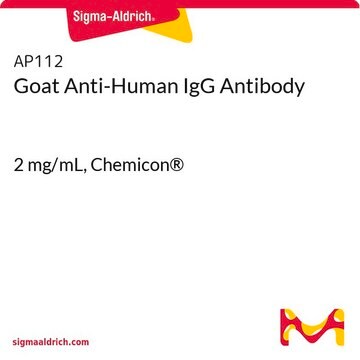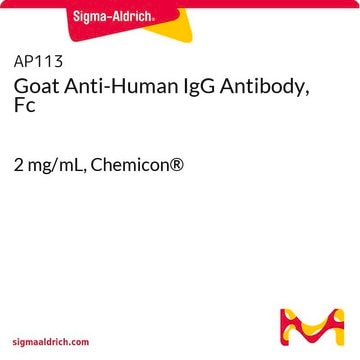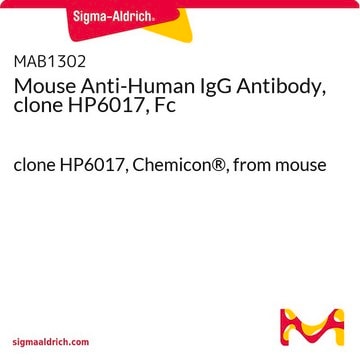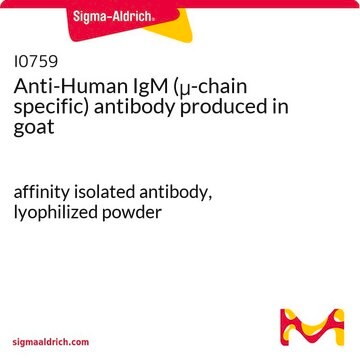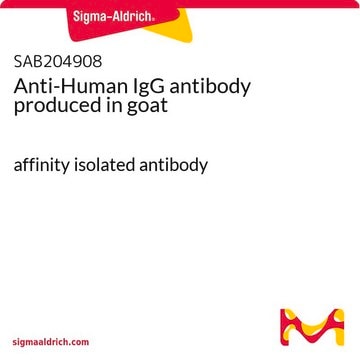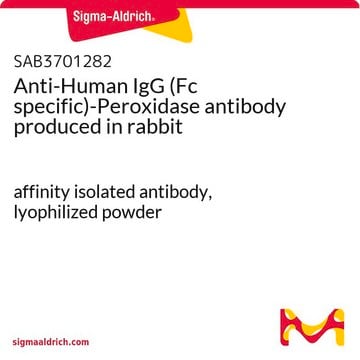I8885
Anti-Human IgG (Fc specific) antibody produced in goat
whole antiserum
About This Item
Produtos recomendados
fonte biológica
goat
conjugado
unconjugated
forma do anticorpo
whole antiserum
tipo de produto de anticorpo
secondary antibodies
clone
polyclonal
contém
15 mM sodium azide
técnica(s)
indirect ELISA: 1:50,000
quantitative precipitin assay: 4.0-7.0 mg/mL
Condições de expedição
dry ice
temperatura de armazenamento
−20°C
modificação pós-traducional do alvo
unmodified
Procurando produtos similares? Visita Guia de comparação de produtos
Categorias relacionadas
Descrição geral
Especificidade
Aplicação
Ações bioquímicas/fisiológicas
forma física
Armazenamento e estabilidade
Exoneração de responsabilidade
Not finding the right product?
Try our Ferramenta de seleção de produtos.
Código de classe de armazenamento
10 - Combustible liquids
Classe de risco de água (WGK)
WGK 1
Certificados de análise (COA)
Busque Certificados de análise (COA) digitando o Número do Lote do produto. Os números de lote e remessa podem ser encontrados no rótulo de um produto após a palavra “Lot” ou “Batch”.
Já possui este produto?
Encontre a documentação dos produtos que você adquiriu recentemente na biblioteca de documentos.
Os clientes também visualizaram
Nossa equipe de cientistas tem experiência em todas as áreas de pesquisa, incluindo Life Sciences, ciência de materiais, síntese química, cromatografia, química analítica e muitas outras.
Entre em contato com a assistência técnica
